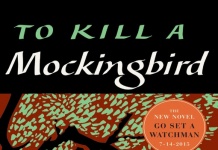 Isn’t it nice to be asked for your opinion? To think that someone in authority actually wants to know what you think. This implies that your thoughts are valuable, that you are valuable.
Isn’t it nice to be asked for your opinion? To think that someone in authority actually wants to know what you think. This implies that your thoughts are valuable, that you are valuable.
It’s rare to be consulted by tech companies on anything these days, let alone in the world of ebooks. Yet that’s what happened this week in Australia, when Sony Australia asked me to cook up a survey and poll the opinions of the ebook masses. What do they want, what do they hate, what would make their ereading experience better? Sony have just launched two touchscreen ereaders in Australasia, the first time we’re seen any Sony Reader for sale here. Yet they realise that the job is not done. They are still keen to work with the readers. After all, that’s were the money comes from. Sony wanted everyday plebs to tell them what they should do next with ebooks. In a nice way.
People appreciate that, and readers filled out plenty of surveys, 80 or so of which were presented at a roundtable of ebook industry types that Sony hosted in Sydney yesterday.
From Bookseller + Publisher:
‘Reading in Australia is undergoing a paradigm shift, with the introduction of digital devices,’ a Sony spokesperson wrote in material supplied to participants. ‘In just a few years, we will look back on this time as a defining moment in the history of digital books, reading and publishing. ‘According to Forrester Research, ebook sales worldwide are expected to jump from $323 million in 2008 to nearly $9 billion by 2013. Right now, this bodes well for global access to information–digital books are easy to download, consume, annotate and share with others.'”
So the stakes are high, and the players in a position to advance the industry. Kudos to all involved in the round-table.
On the software side of the equation, the world is waiting for ebooks-meet-rich-media in the upcoming Blio platform, which touts itself as being open to all. Canadian firm Kobo is spreading its wings across the world, and attempting to bring down at least some of the artificial barriers that have sprung up between brands of books, devices and software. Kobo’s latest update of its desktop software syncs its ebooks to a variety of devices, not just to the Kobo Reader.
As users, we understand that the ebook ideal is that any reader is able to download any book and take it anywhere on any device. Some sectors of the ebook ecosystem seem to understand it too, and are willing to do something about it.
Pity about the publishers, though. In the last week I have talked to two Aussie authors, both of which have told me of the frustrations of trying to get the digital versions of their (bestselling) books out to readers. One told me his publisher agreed to publish his books in digital, but only if he signed over his e-rights for a longer term, and reduced his ebook royalty from 25% to 15%. No deal. So the publisher will just squat on the e-rights and publish pbooks only. That author is stuck.
For the other author, ebooks aren’t even on the publisher’s radar.
Lock it down, DRM it, get the rights, sit on them. That seems to be many publishers’ plan. And that’s no plan at all.


































I have just purchased a Kobo – one of the few ebook readers available in Australia. I WAS going to buy a Sony, but repeated requests at the Sony retail shop brought either blank looks or a bland reply that Sony wasn’t planning to release its ebook reader in Australia. My Kobo has received such attention at university, on buses, amongst friends that I must have “sold” about 100 in the past 2 weeks. Digital books? Best to buy from overseas, some retailers (e.g. Penguin) don’t even have ebooks on their Australian site. The craziest part is that Australians buy electronic gadgets by the truckload; if it has LEDs and looks cool they will buy anything! So why wait until the market has been cornered by Kindle and Kobo and then try to move in?
(And yes – I am angry that Sony has treated us like some backwards country that is still trying to work out how to use a light switch.)
Your interaction seems weird Carol A. The new sony readers (350 & 650) actually showed up and have been sold in Australia before any other country worldwide.